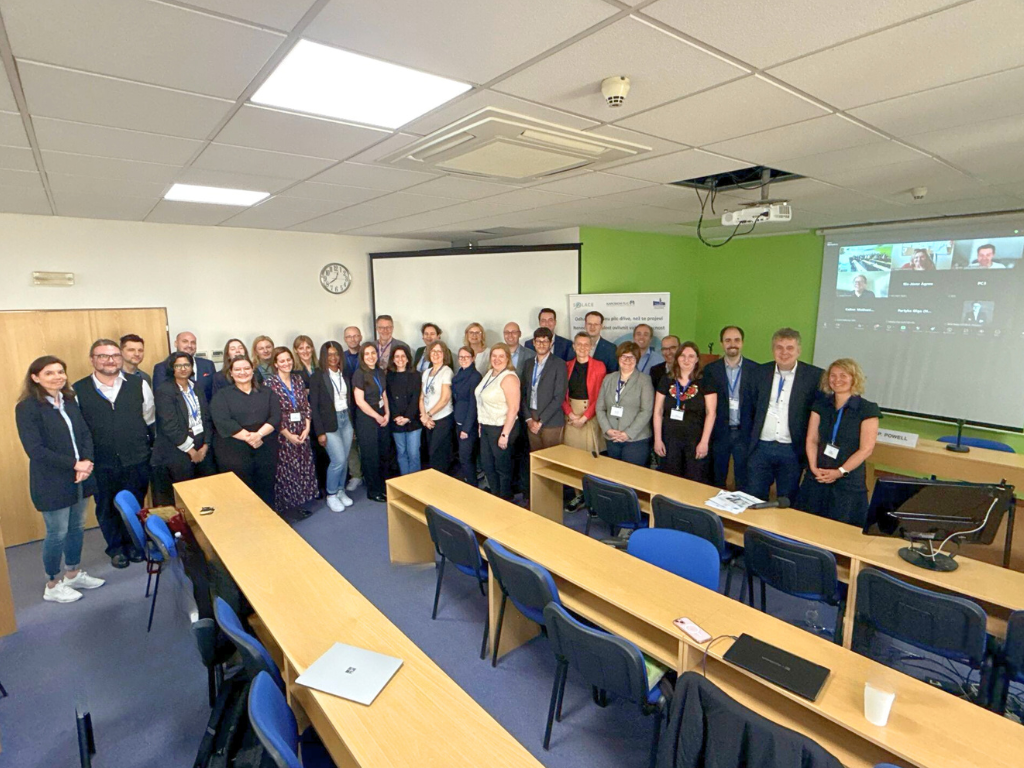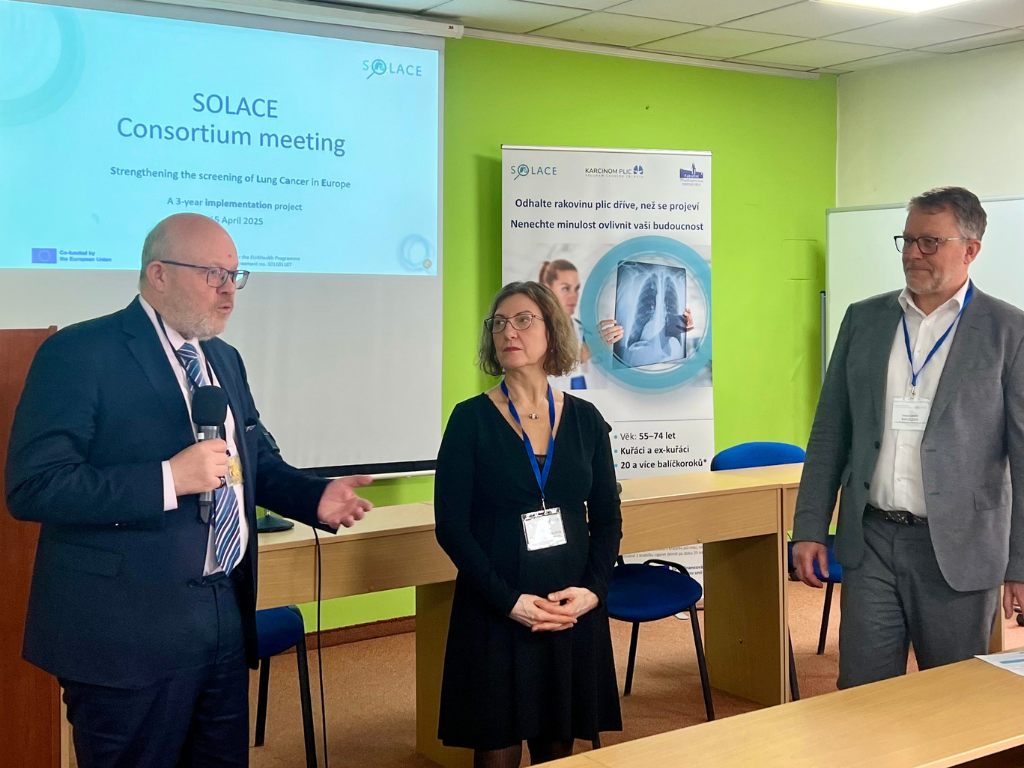
SOLACE consortium charts the path ahead in Prague
On 15–16 April 2025, SOLACE’s 37 partner organisations gathered in Prague, Czech Republic, for the project’s annual consortium meeting, bringing together healthcare professionals, data experts, patient representatives and policymakers from across Europe.
With the project in its final year, the meeting was an opportunity to reflect on progress across work packages and pilot sites and coordinate efforts for the road ahead.
The meeting opened with remarks from Vlastimil Válek, the Czech Republic’s Deputy Prime Minister and Minister of Health, who shared how the country is transitioning from a successful national pilot to a fully integrated lung cancer screening programme. His contribution underscored the real-world potential of SOLACE’s work and set the stage for two days of focused discussion and collaboration.

What have we achieved?
- Pilot projects: Recruitment for SOLACE’s three pilot projects in 11 countries is nearing completion. Around 17,500 participants have already been enrolled, with final recruitment expected by September 2025. The pilots are testing practical ways to reach people at high risk of lung cancer and improve early detection in real-world settings.
- European guidelines for lung cancer screening: Development of the SOLACE guideline and implementation package has reached an important milestone. After mapping over 250 existing recommendations and completing two stakeholder surveys, 15 guideline modules are now being refined. All key stakeholders from across Europe are working together to build consensus around best practices for lung cancer screening.
- National insights: Findings from expert teams across EU member states, along with Norway, Iceland and Liechtenstein, reveal both progress and persistent gaps. While some countries are moving towards structured screening programmes, others face barriers such as limited funding, infrastructure or national policy frameworks. A second round of interviews is planned to update and deepen this analysis.
- Workforce training and sustainability: Work is underway to map training needs for healthcare professionals involved in lung cancer screening across EU member states, supported by clear demand from the field. At the same time, SOLACE partners are investigating how to continue the project’s momentum beyond its formal end.
What’s next?
As the project draws to a close, SOLACE is focused on turning its findings into practical tools and guidance for the people who will shape the future of lung cancer screening.
For the public, this means clear, accessible information on who screening is for and how it helps. It will address their fears and concerns and provide evidence on the barriers and blocks that need to be overcome to make accessing screening easier for all.
For healthcare professionals, it means evidence-based, best-practice guidance on how to deliver screening safely and effectively. For national and European policymakers, it means strategic recommendations based on scientific and economic evaluation, making a strong case for sustained political and financial support.
All the project’s resources will come together in a knowledge hub, which is set to be developed in the coming months. These resources will help create a stronger, more consistent approach to lung cancer screening across Europe.
The next key milestone will be the Cancer Screening and Early Detection Policy Summit in February 2026, aiming to drive momentum for long-term policy change. The summit is a chance to share SOLACE’s findings and integrate them with findings from the EU-funded PRAISE-U and TOGAS projects, which focus on prostate and gastric cancers. Registration details will be shared soon.
We are grateful to everyone who contributed during the meetings, both in person in Prague and online, including colleagues from the European Commission and the SOLACE boards. Thanks to international collaboration, SOLACE and its partners are helping to build a stronger foundation for lung cancer screening across Europe.

